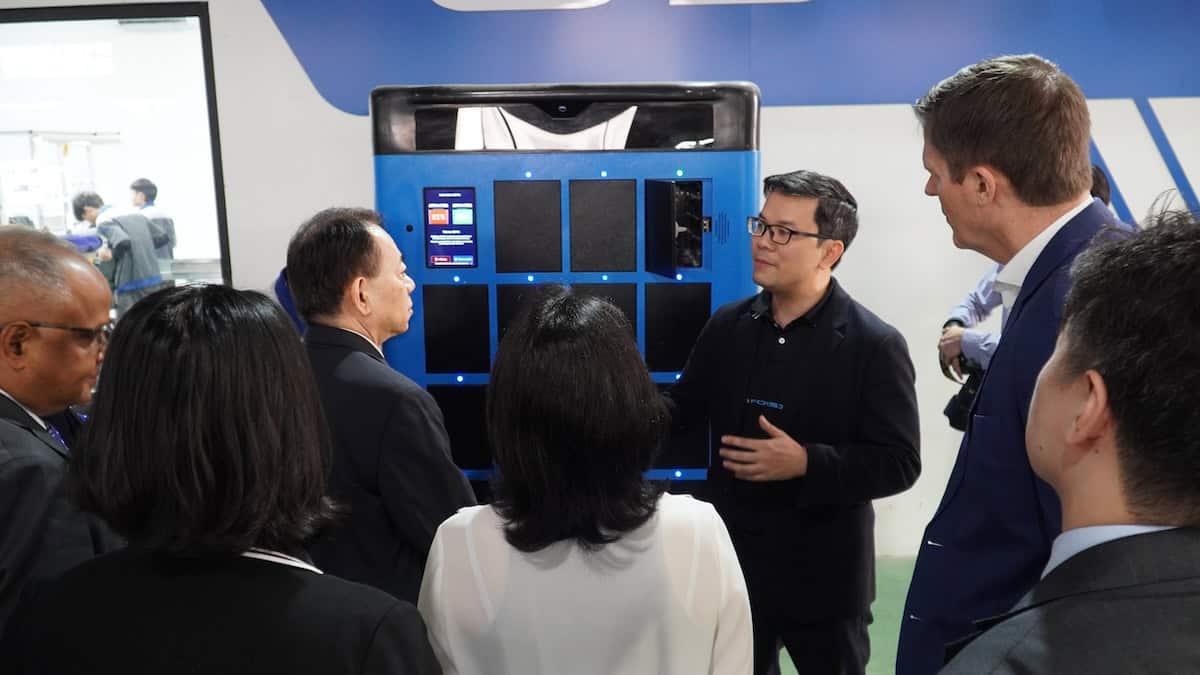Vietnam has less than thirty years to achieve a major goal: having net-zero carbon emissions by 2050.
One avenue to hit this target involves limiting – and eventually stopping – the import and manufacture of vehicles powered by fossil fuels. Subsequently, the country will look to transition almost all vehicles in the country – cars, motorcycles, buses, and even inland waterway vessels – into using renewable energy sources.
This is a lofty ambition, especially considering that Vietnam is a major motorcycle manufacturing hub. Honda Vietnam, for one, currently owns and operates three factories in the country with a production capacity of 2.5 million motorcycles a year.

Electric vehicles (EVs) will be a vital piece of the puzzle for the country to reach its objective and will play a key role in getting fossil fuel-powered vehicles off the streets. That’s why we’re focusing on EVs at Tech in Asia’s upcoming Saigon Summit and will be unpacking the opportunities that lie in the space.
Ahead of the event, Nguyen Nguyen, the co-founder and CEO of Vietnamese EV firm Selex Motors, shares his perspectives on Vietnam’s EV scene and what it takes to be an entrepreneur in the sector.
The following interview has been edited for clarity and brevity.
What inspired you to start your company?
I aspire to drive sustainable development in Vietnam by developing Selex into a Hyundai of Vietnam. For me, sustainable development is not just about the environmental aspect; it also means things like a high quality of product development and value adding in the supply chain.
For Vietnam to reach its full potential, we need to have our own manufacturing champions, like the Hyundais and Samsungs of the world. The EV revolution is just a perfect opportunity – a once-in-a-century one – for us to realize this dream.
What’s exciting about Vietnam’s electric vehicle scene?
Vietnam is the fourth-largest internal combustion engine (ICE) two-wheeler (2W) market in the world. Currently, there are 70 million ICE 2Ws in Vietnam. If all of these vehicles were electric today, they would be worth about US$100 billion. The market potential is staggering. Vietnam is also leading the region in electric 2W market share by a large margin, making up more than 90% of the total market. With the electric 2W market penetration still at around 10% of the total 2W market, the potential to grow is very exciting.
So far, electric 2W market growth in Vietnam has largely been driven by the private sector. But the Vietnam government is developing policies to spur further growth. Our prime minister made a commitment for Vietnam to achieve net-zero emissions by 2050. The government also issued a road map for green transportation, limiting the production and import of ICE vehicles after 2040 and requiring that all vehicles on the road must be green by 2050. Given this context, the market for EVs is bound to see explosive growth in the coming years.
What’s the biggest challenge you’ve faced so far on your entrepreneurial journey?
Surviving two years of Covid-19. When Covid-19 hit, I realized that It could last really long, and almost everything would be frozen. It almost certainly meant death for a pre-revenue EV startup like us. Our runway was less than six months.
To survive, we needed to do multiple things: cut costs, find a way to generate cash, and pivot our product to better fit with the new normal. Even with all of that done, it might not be sufficient to survive. But we needed to do something fast. So we decided to reduce everyone’s salary and developed automatic hand sanitizers to generate quick cash.
Although the salary reduction caused almost half of the employees to quit, our hand sanitizers were sold like hot cakes after only two months of development. It was a miracle that we could develop the products within only two months during unpredictable lockdowns. The team basically stayed in the office and workshop to work on the project non-stop.
The cash generated from selling the automatic hand sanitizers helped us stay afloat during the challenging time. Our hand sanitizer story was appreciated by the public and got featured by national leading news channels.
In parallel, we pivoted our product from high-end B2C vehicles to B2B- and logistics-focused solutions. During the pandemic, the delivery sector was one of the few sectors that was thriving, and thanks to the pivot, we were able to acquire Lazada Logistics as our first customer and were able to raise our first VC round. We came out of the pandemic stronger than ever before, with doubled headcounts and a new factory set up.
What advice do you want to give to aspiring entrepreneurs?
Your dream needs to be big and meaningful enough for you to devote your whole life to achieving it. Grit and adaptability – not talent – are what will take you through ups and downs.
And yes, one can build an automotive startup from scratch in Southeast Asia. Selex Motors was founded in a small 10 square meter room in a university with nothing but an idea.
What will you be speaking about at Tech in Asia’s Saigon Summit and why is it important?
Vietnam is such an exciting market for EVs, and I want to share my firsthand experience of the industry at this event. I hope that the attendees, especially potential investors and partners, will have a better perspective about Vietnam’s EV potential and greater interest in the sector after the event.
Hear more from Nguyen, as well as a host of other exciting speakers, at Tech in Asia’s upcoming Saigon Summit. Held on May 30 at GEM Center, Ho Chi Minh City, we’re bringing together some of Southeast Asia’s best and brightest to chart Vietnam’s tech future together.
Get your tickets to Saigon Summit today.
Source: Yeo, Stefanie. “The Road to Vietnam’s Net-Zero Future Is Paved with Electric Vehicles.” Tech in Asia – Connecting Asia’s Startup Ecosystem, Stefanie Yeo, www.techinasia.com/road-vietnams-netzero-future-paved-electric-vehicles. Accessed 24 Apr. 2024.




